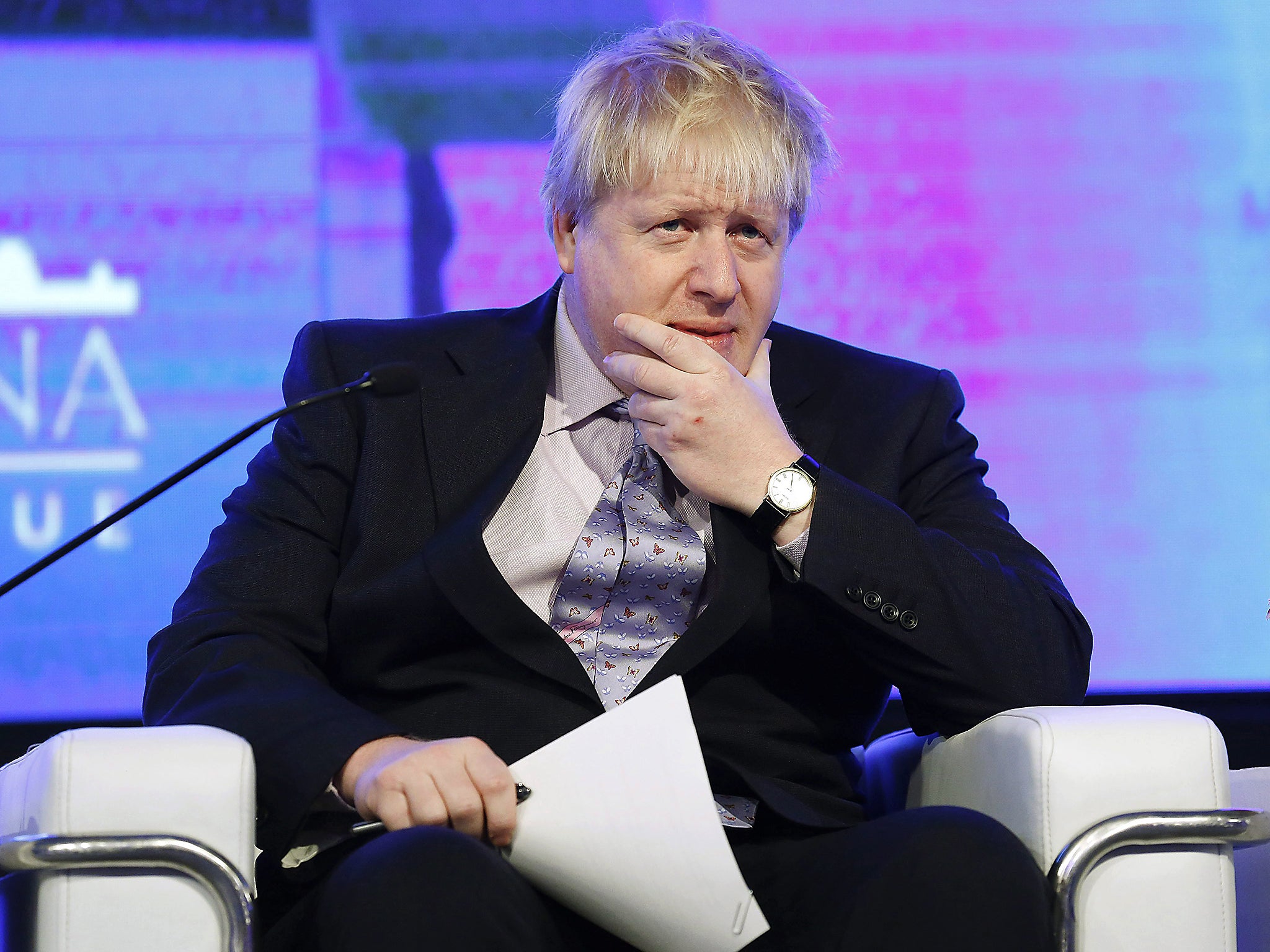A trade deal with India isn't as easy as Boris Johnson and Theresa May think
The UK is in a relatively weak bargaining position for precisely the same reason as it is with the EU (and most of the other potential new trade deals) – which is to say that Britain needs India more than India needs Britain

The irony could scarcely be more acute. Britain is about the leave the European Union because of its insistence on free movement of people, and seeks new partnerships with fast-growing emerging nations. Emerging nations, however, insist on free movement of people as a condition for concluding free trade deals for goods and services. Not, perhaps, what the Prime Minister has in mind for Brexit.
The confirmation from senior Indian officials, including the new High Commissioner to Britain, that India wants a much more liberal approach to visa policy in return for trade and investment demonstrates the scale of the task facing ministers. The Foreign Secretary, doing his usual routine in Delhi, demands a new “turbocharged” relationship with India. He concedes it may take a little time to negotiate, but, in typical Boris fashion, suggests that it can be sketched out now with a pencil on the back of an envelope. Nothing wrong with that, except that the back of the envelope will have phrases such as “reformed visa policy”, “free movement of people” and “greater access to the UK for students and IT professionals” scribbled on it.
One of the very many uncomfortable truths about Brexit emerges from this: that free trade in services, usually a “people business”, requires even more freedom of movement for individuals than does free trade in manufacturing. The UK is overwhelmingly a mature, services-based economy, and India, with about 60 per cent of its economic activity accounted for by services, is not far behind. Thus, a free trade deal will have to involve a much changed attitude to allowing Indian workers into the UK. A much changed attitude, that is, to the one Theresa May displayed when she was Home Secretary and which was obvious again when she last paid an official visit to India.
The phrase “have your cake and eat it” inevitably springs to mind when looking at the Government's approach to trade with India, and indeed any country where Britain could potentially repair some of the damage that will be inflicted by the “bold” hard Brexit policy she outlined at the start of the week.
In fact, like the EU, India is a much larger economy than the UK, if it is measured properly by abstracting away the distortions of exchange rates. The UK, therefore, is in a relatively weak bargaining position for precisely the same reason as it is with the EU (and most of the other potential new trade deals) – which is to say that Britain needs India more than India needs Britain.
The possibilities, though, are well worth chasing. Indian firms, perhaps the most high-profile being Tata’s successful stewardship of Jaguar Land Rover, have a mostly exemplary record as investors in British industry and commerce, and there is much more that can be done in that direction. British firms helped India’s economy grow when they outsourced call centres, service departments and, above all, IT hubs to the subcontinent. Freer trade in manufacturing, both high-tech and more basic, is also an obvious target for collaboration, though it is unlikely that India will find it easy to deregulate areas such as finance, retail, agriculture and defence, where legendary Indian bureaucracy reigns supreme. Still less will the Indian government want to alienate powerful interests in their own country for the sake of appeasing the British if, in return, the UK continues to cold-shoulder its most talented professionals.
Boris, it is fair to say, has his work cut out.

Join our commenting forum
Join thought-provoking conversations, follow other Independent readers and see their replies